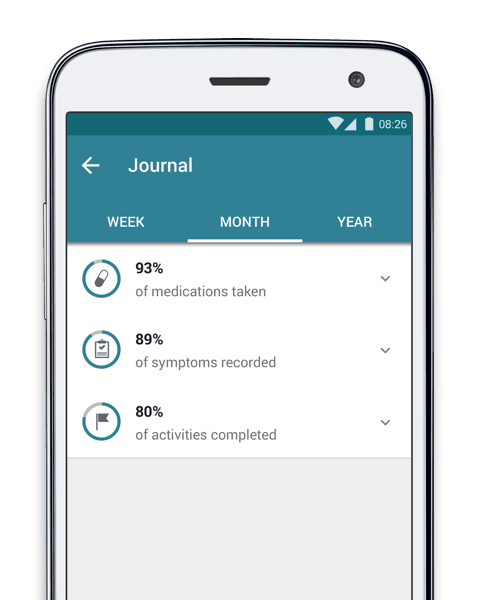Sudden unexpected death in epilepsy (SUDEP). The name is quite self-explanatory, but it is a poorly-understood and little-known risk people with epilepsy live with. It accounts for 15% of all deaths caused by epilepsy, a figure that rises to 50% in refractory epilepsy – a form that is resistant to drugs. Sally Gomersall, of Epilepsy Awareness, has lived with the condition since infancy and was at high risk of SUDEP. She fought for brain surgery which was successful, helping her take control of her life, much of which she now dedicates to educating and informing others. In support of Purple Day, which aims to raise awareness about epilepsy, Sally shares her experiences with us.
“I Was Told I Would Die from Epilepsy”
“As we reach another Purple Day on 26th March where the international epilepsy community raises awareness of the seizure disorders and their impact on daily lives, I am sharing my story about raising awareness of epilepsy.
“I had my first seizure when I was about 18 months old. Despite lots of drug treatment the seizures continued into my adult years. Life was sometimes hard,” recalls Sally, whose epilepsy remained impervious to medications. As her family grew, so did the stress that accompanied the lingering risk of seizures.
“The most difficult times were when I had two children under five years old. I didn’t get much warning of my seizures and I was always afraid that I would put my children in danger. I became very isolated and anxious but knew that finding the optimal treatment strategy was the key to improving our lives.
“Then everything happened very quickly for me. After years of asking, I was referred to a London hospital where they could cure some types of epilepsy.
“Two doctors told me I would die from my epilepsy before I was forty years old
“I’d had some near misses such as walking off a station platform and onto a railway line during a seizure, but they meant of sudden unexpected death due to epilepsy. This is when a person with epilepsy dies suddenly, prematurely, and no other reason is identified after the death. Most people are not at risk of SUDEP but I was.”
What is SUDEP?
The risk of sudden, unexpected death is a risk of epilepsy not many people are aware of. Most people associate epilepsy with seizures, but don’t consider the condition itself to be life-threatening. Indeed, even Sally herself only learned of SUDEP after having her children.
According to the Epilepsy Society, the textbook definition is:
“The sudden, unexpected, witnessed or unwitnessed, non-traumatic, and non-drowning death in patients with epilepsy with or without evidence for a seizure, and excluding documented status epilepticus, in which postmortem examination does not reveal a structural or toxicological cause for death.”
SUDEP accounts for roughly half of the 1,200 epilepsy-related deaths in the UK each year. In the USA, an estimated 1 in 1,000 of the 3.4 million people living with epilepsy die from SUDEP annually, although the figure may actually be significantly higher but underreported.
Cardiac and respiratory arrests are often involved in SUDEP, but the underlying mechanisms are poorly understood. It is therefore extremely difficult to mitigate the risk, especially when anti-seizure medications prove ineffective, as they did for Sally. In some cases, brain surgery is a suitable – albeit risky – alternative. Fortunately for Sally, she was a suitable candidate for surgery.
Read Tábata’s story about life with epilepsy:
Successful Brain Surgery
“Within months of seeing the specialist multi-disciplinary epilepsy team and having lots of tests I received a letter giving me the go ahead for a brain operation.
“I had hippocampus sclerosis, but the surgery offered me a 75% chance of becoming cured – no more seizures.
“The surgery was a success”
The risks posed by any brain surgery, such as stroke, are not to be taken lightly. However, for those at risk of SUDEP, and for whom surgery is a viable option, having access to all of the information needed to make an educated decision is vital.
Sally and her family were not aware of SUDEP for years, and many others at risk are similarly unaware. Following her successful surgery, Sally has been committed to raising awareness. Having worked at SUDEP Action, Sally founded Epilepsy Awareness, which focuses primarily on carers.
“I knew I had to find a role to use my experience of living with seizures.
“I came up with the name Epilepsy Awareness. I would target the social care market. Organisations that support vulnerable people with epilepsy have to demonstrate to the regulator that their staff have the knowledge and skills to care and support this group.
“I could offer an insight into life with uncontrollable seizures. I applied for a start-up grant of £1,000.00 in 1998. This grant provided me with the equipment I required to deliver my training.”
Going from Strength to Strength
“The first couple of years were hard, but I was determined to keep going.
“The feedback I received from the course participants was excellent - and confirmed they related to my personal experience of having seizures; those who had worked in the care sector for many years and had sat through epilepsy courses previously, agreed this training was much better and unique.
“For me, it was important to inform, empower, and engage carers about epilepsy and to seek the best possible treatment for vulnerable people with seizures. I would not have received the surgical treatment for my epilepsy had I not known about it or persevered with a referral to a specialist centre.
“In the early days, I secured regular training with a couple of local authorities and with some larger residential care providers. This increased my confidence. I met care providers that thought it was okay for their resident or tenant to have a few seizures a week, because that’s how it’s always been for the person. I relish challenging them to seek more specialist input for their resident or tenant with complex epilepsies – and never giving up on finding the best possible treatment strategy.
“Epilepsy Awareness has gone from strength to strength as we reach our 20th year in providing specialist epilepsy training. The original motivation of informing, empowering, and engaging to enable more vulnerable people with epilepsy to maximise treatments and care to improve their life chances still drives me.”
We would like to thank Sally for sharing her story with us. For more information about SUDEP, visit epilepsy.com.
If you would like your story featured on the MyTherapy blog, contact Dan here.
Take a look at some of the other posts on the MyTherapy blog:



